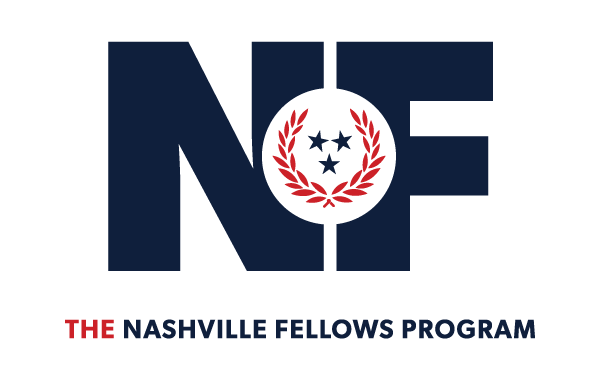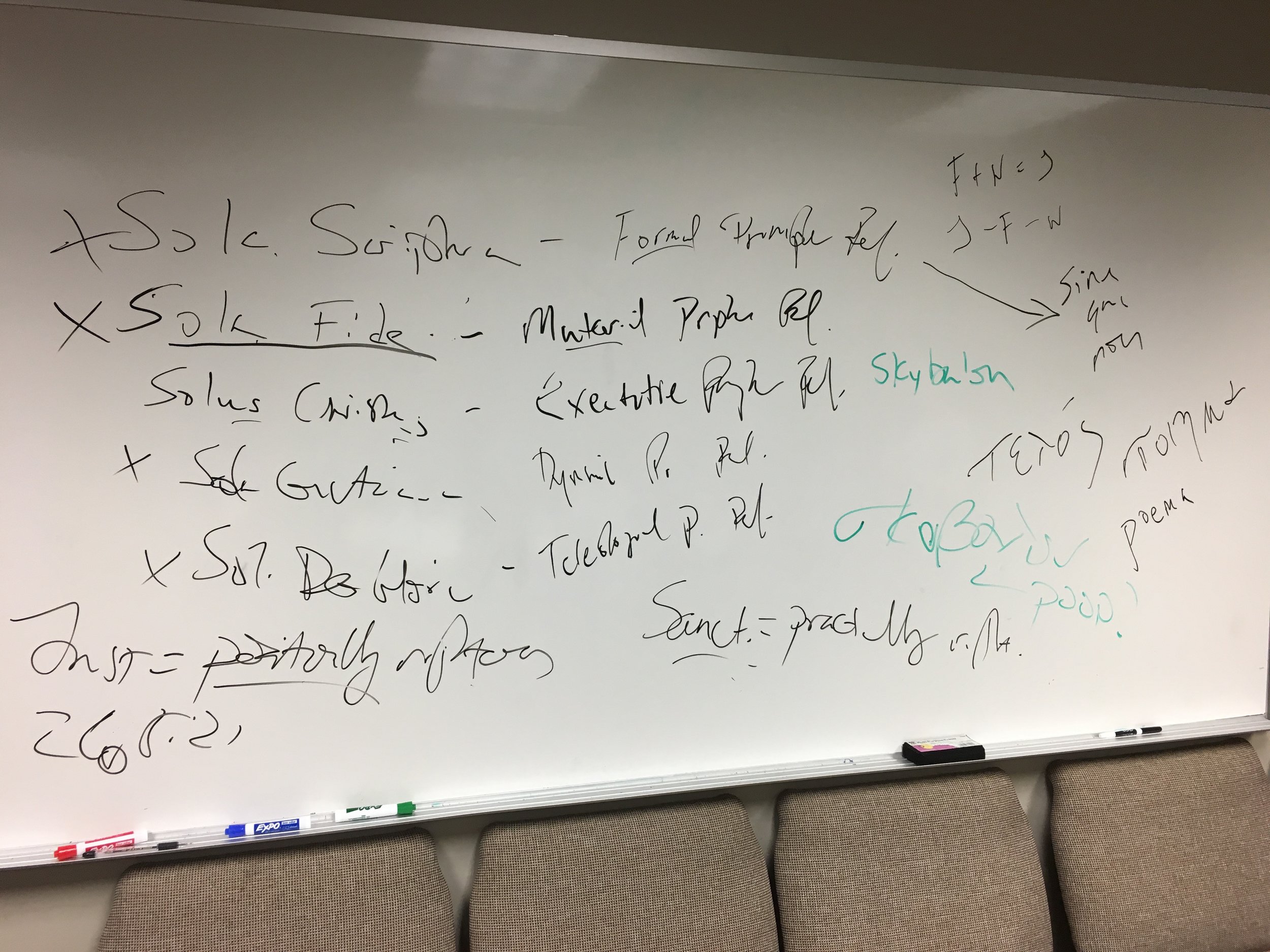The Integrity of Our Faith by Jill Runser
One of my favorite things about this year has been the readings assigned for class and the subsequent conversations that flow from them. My weeks are colored with scenes such as: sitting at the Whole Foods coffee shop with Emily trying to wrap our minds around calvinism; walking at Percy Warner park with Lauren attempting to dissect our spiritual apathy; even conversing with a coworker about observing the Sabbath during school carpool duty. This year has become a year for me to soak up the wisdom of others, authors, pastors, fellows, etc. and to digest it with friends. It has allowed me to start filling in the holes of my theology I didn’t even know were there. To give you insight into what our Mondays are like, please enjoy this picture of our whiteboard after class on the New Testament with David Filson. My brain feels how these words look… Bonus points for anyone who can figure out which Greek word means “poop” and how it relates to Paul’s letters to the Thessalonians.
But, I digress. Currently, we have begun reading The Gospel in a Pluralist Society by Lesslie Newbigin. For my blog I wanted to share a particular quote and my own personal thoughts that have been reverberating throughout my mind this week in the hopes that it will bring as fruitful a reflection and discussion for you as it has me:
“[The Christian tradition] has to be sustained in its integrity by the intellectual vigor and practical courage with which its members seek to be faithful to it-not by repeating past formulas but by courageously restating the tradition in the light of new experience.”
I have often found myself reflecting on the concept of biblical illiteracy this year. In the fall, I had talked about it with a friend and two days later both of our teachers threw out the phrase. Truly, I believe that our generation can be characterized with a more laissez faire approach to our faith. Too often, we claim Christianity and Christ, but we reject the conversations, the foundations, or the beliefs that seem to contradict society or our own personal desires out of fear of rejection or out of doubt in our own hearts. I have, however, also witnessed people swing to the other side, pushing beliefs aggressively at those who do not understand the Bible, Christianity, or the purpose for the laws God has provided us. Frankly, I understand how some may see the modern day church as a stuck up place with antiquated rules. I understand why my fellow “millenials” are weary of the church. What I have been piecing together this year, and what Newbigin states so profoundly, is the importance for us to not only be able to stand firm in our faith and relate the truth of God’s law to others, but to understand why we believe what we believe. On my way back to Nashville this past week I was listening to The Liturgist Podcast on this subject. Michael Gungor told a story about how a girl argued against evolution using the Bible, but when asked why she believed it, her argument was simply because the Bible says so. I think faith in God will always go beyond the tangible and understandable, but I also think it is important for us to engage in “intellectual vigor and practical courage” to understand and ascertain all that God has for us in truth and wisdom.
The point of us studying Scripture, listening to sermons, and reading books on theology are so we can be people who live our faith with integrity. I think the church can lack the discipline in Newbigin’s plea to restate the Christian tradition “in the light of new experience.” Sure, we understand that God has a plan and a way in which he has created people and the world to be so that it can produce the most fruit. Sure, we already trust that God is God, He is omnipotent and wants what’s best for us, and therefore his rules reign supreme. However, if we aren’t able to bring these truths into our cultural experiences, restating them for those in a certain context to understand why we think this way, then our efforts make no sense to others. We must show the integrity of our faith and how it stands the test of changing times where the belief that one sovereign Creator God exists is no longer held as the popular belief. I am excited that the Nashville Fellows Program is a community of people who does not want to shy away from these hard conversations. I am excited that we have differing opinions on many subjects! I am excited that we are a community who desires to delve into developing our understanding of who God is, what His Word says, and how we can practically live in light of His truths day by day. And, I am always excited for the next Monday!

